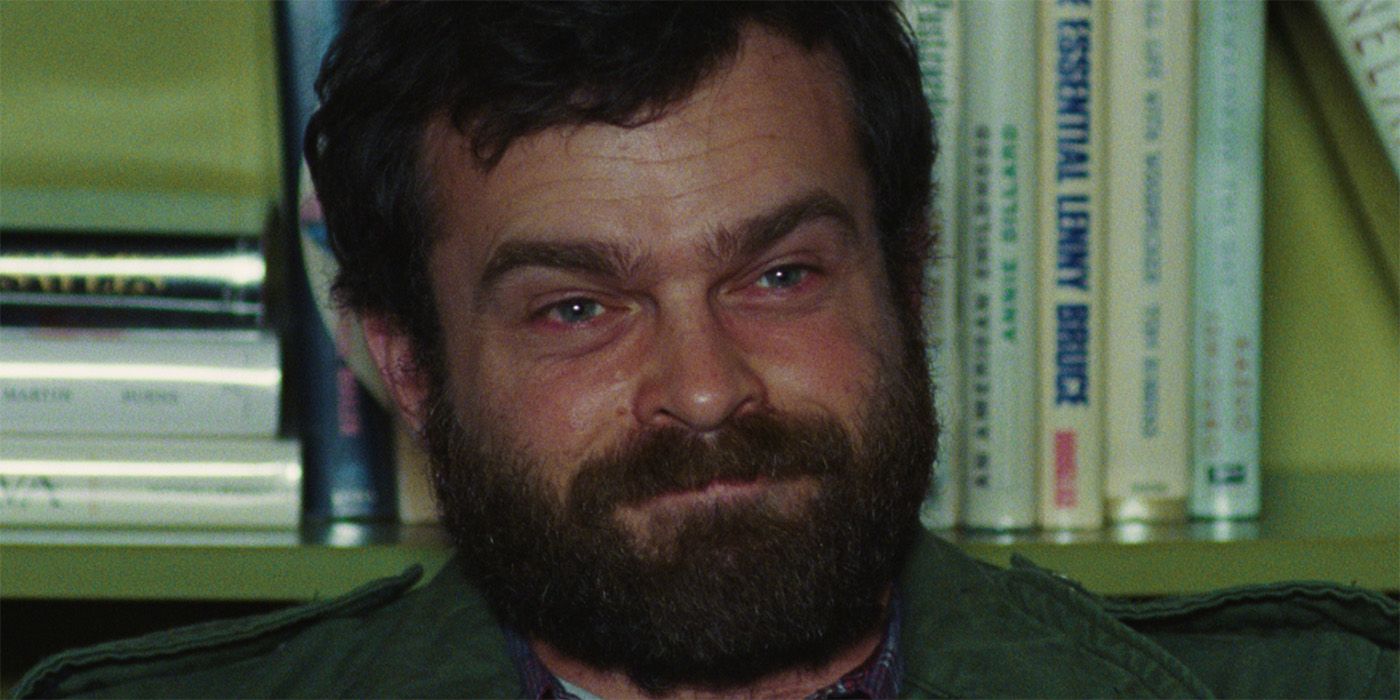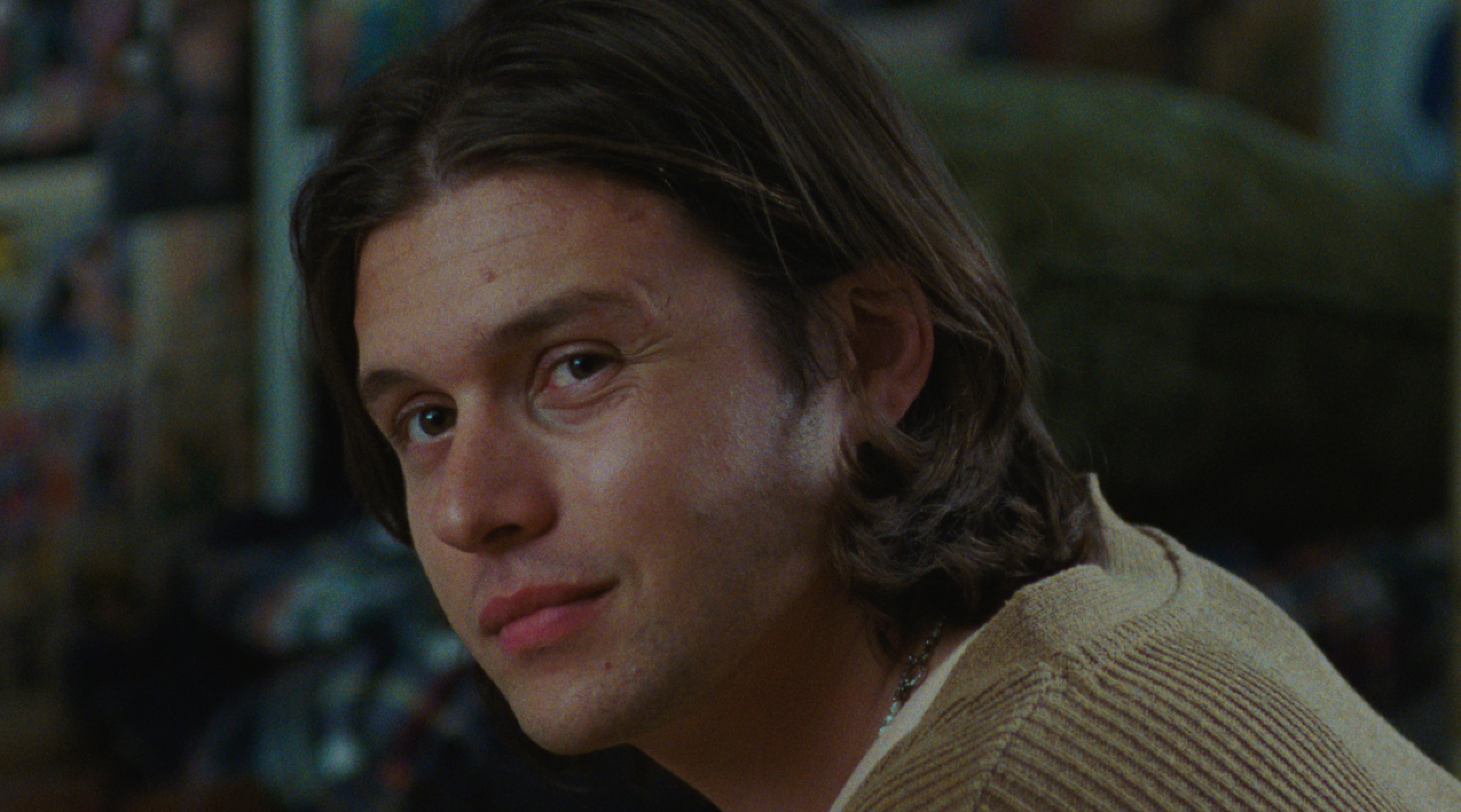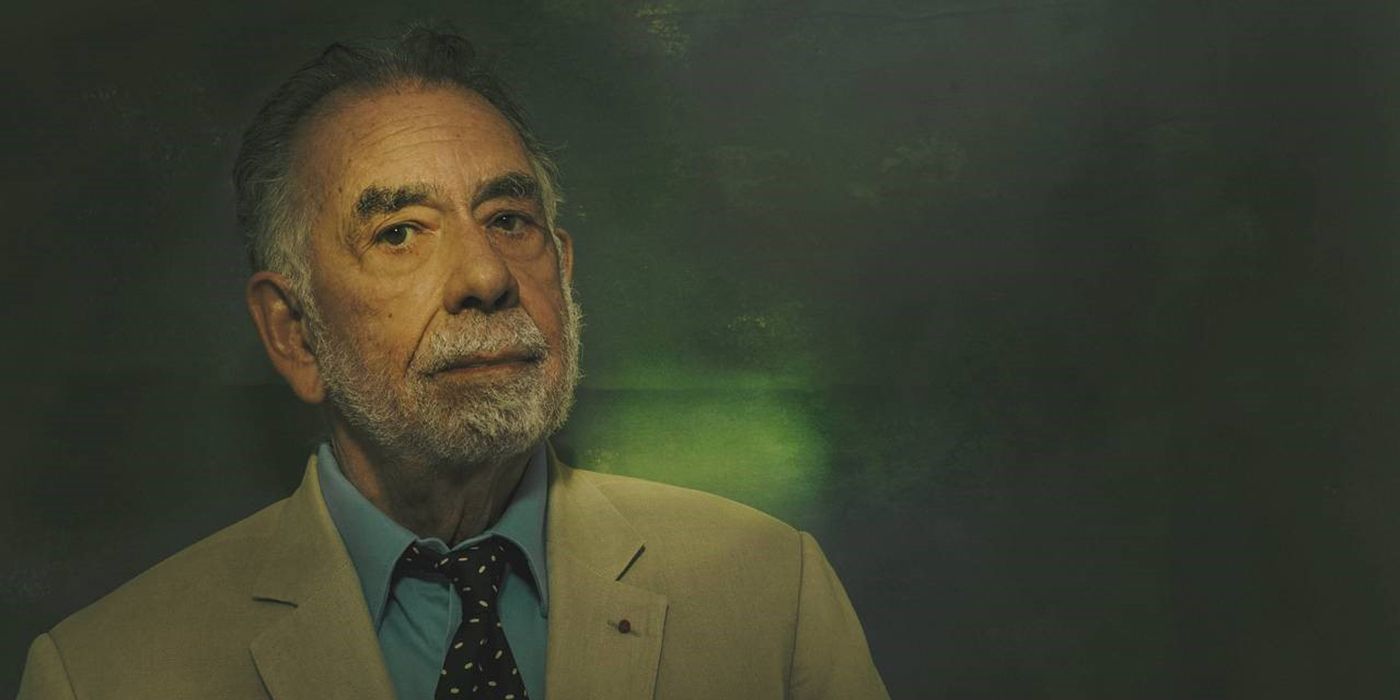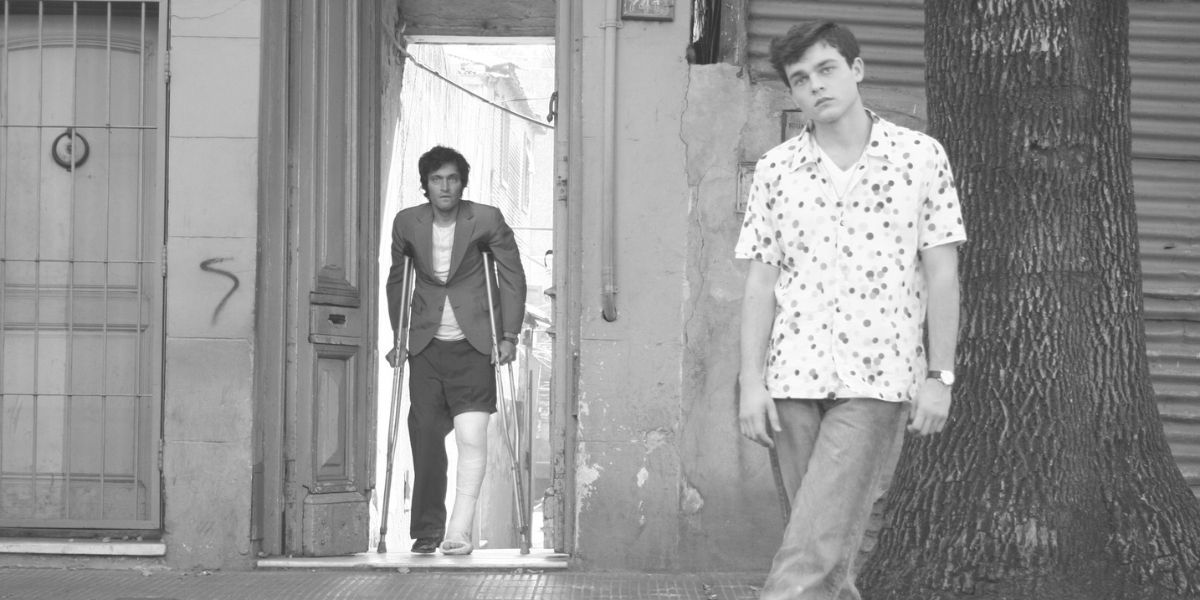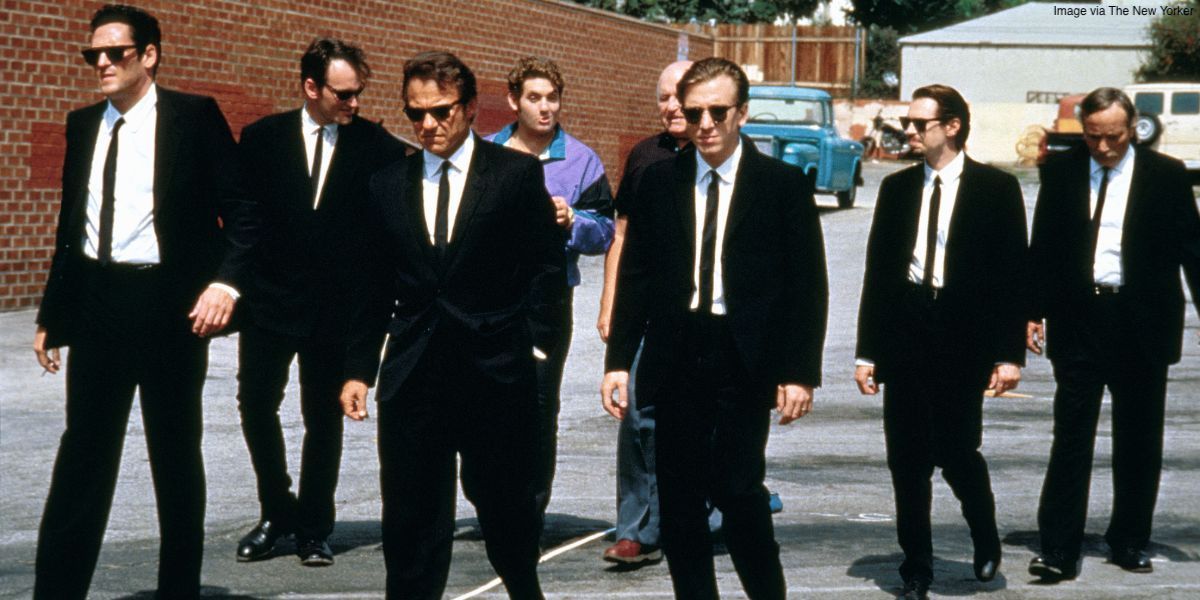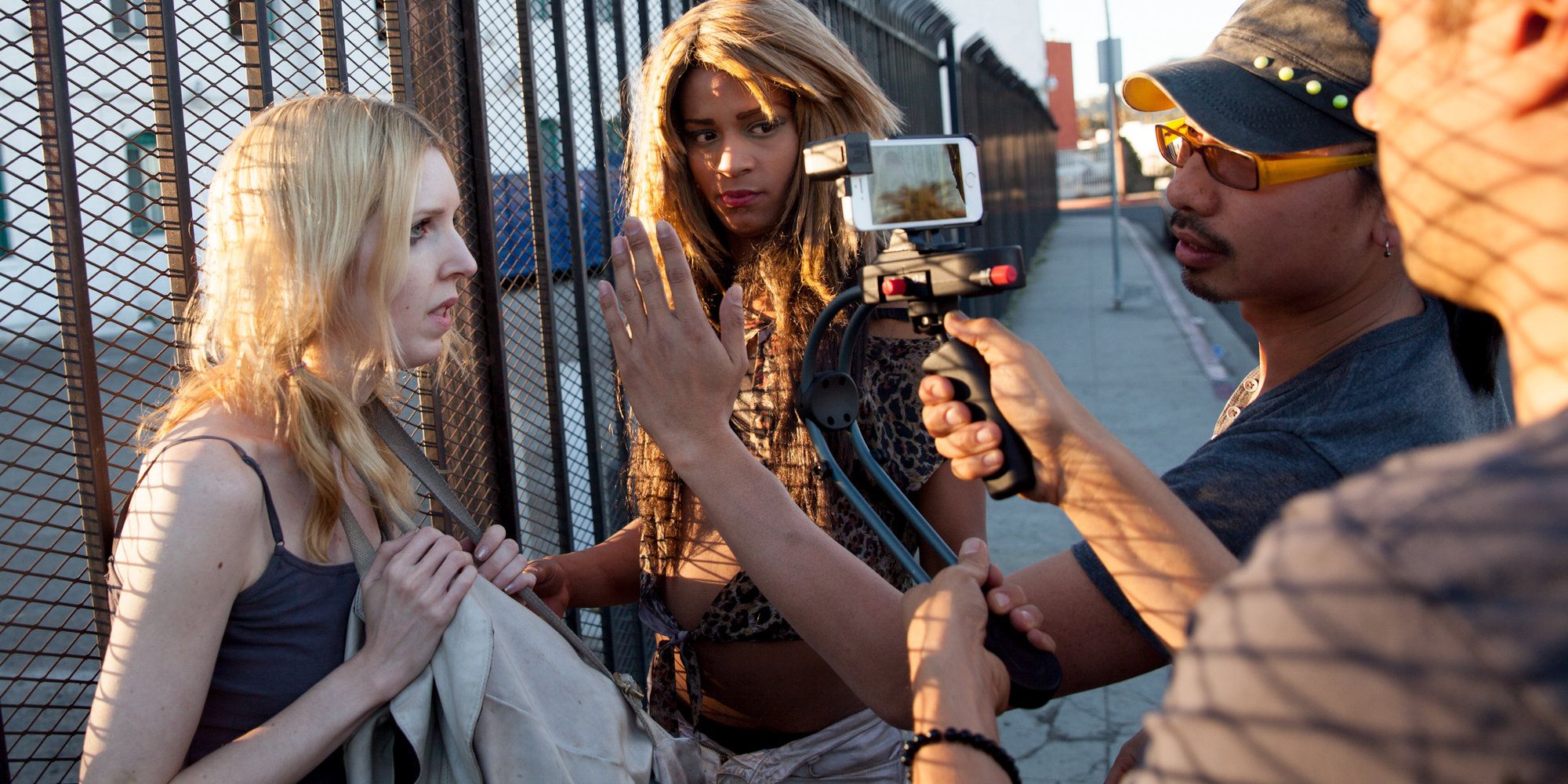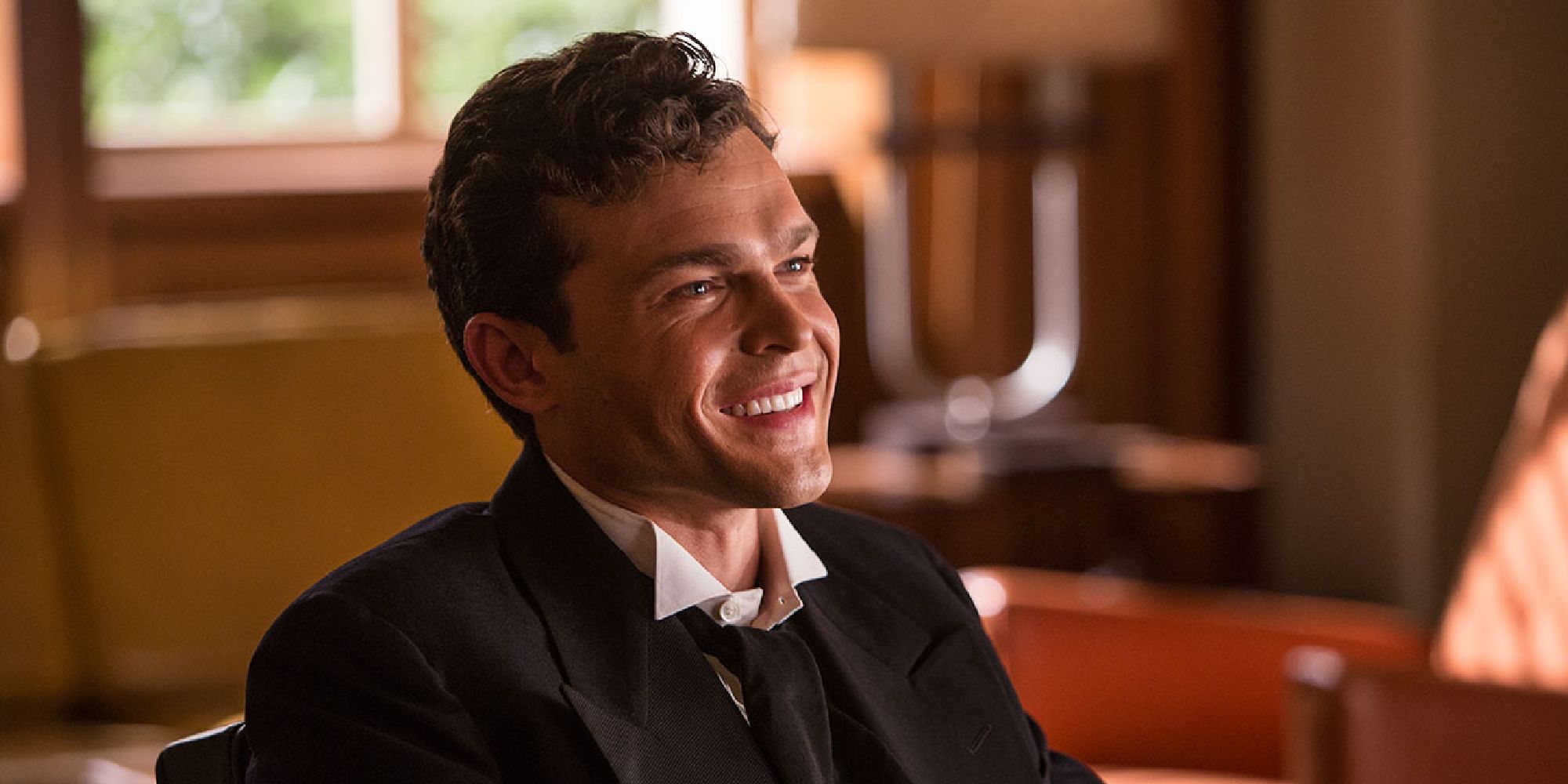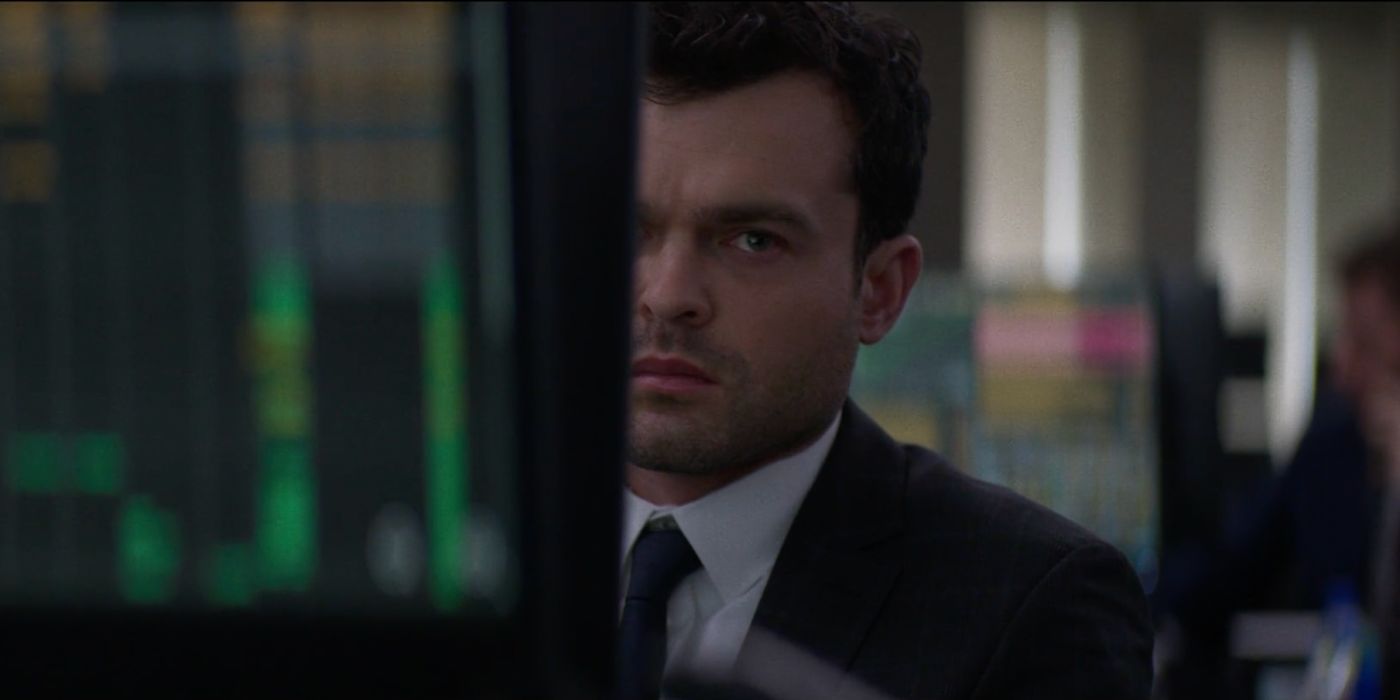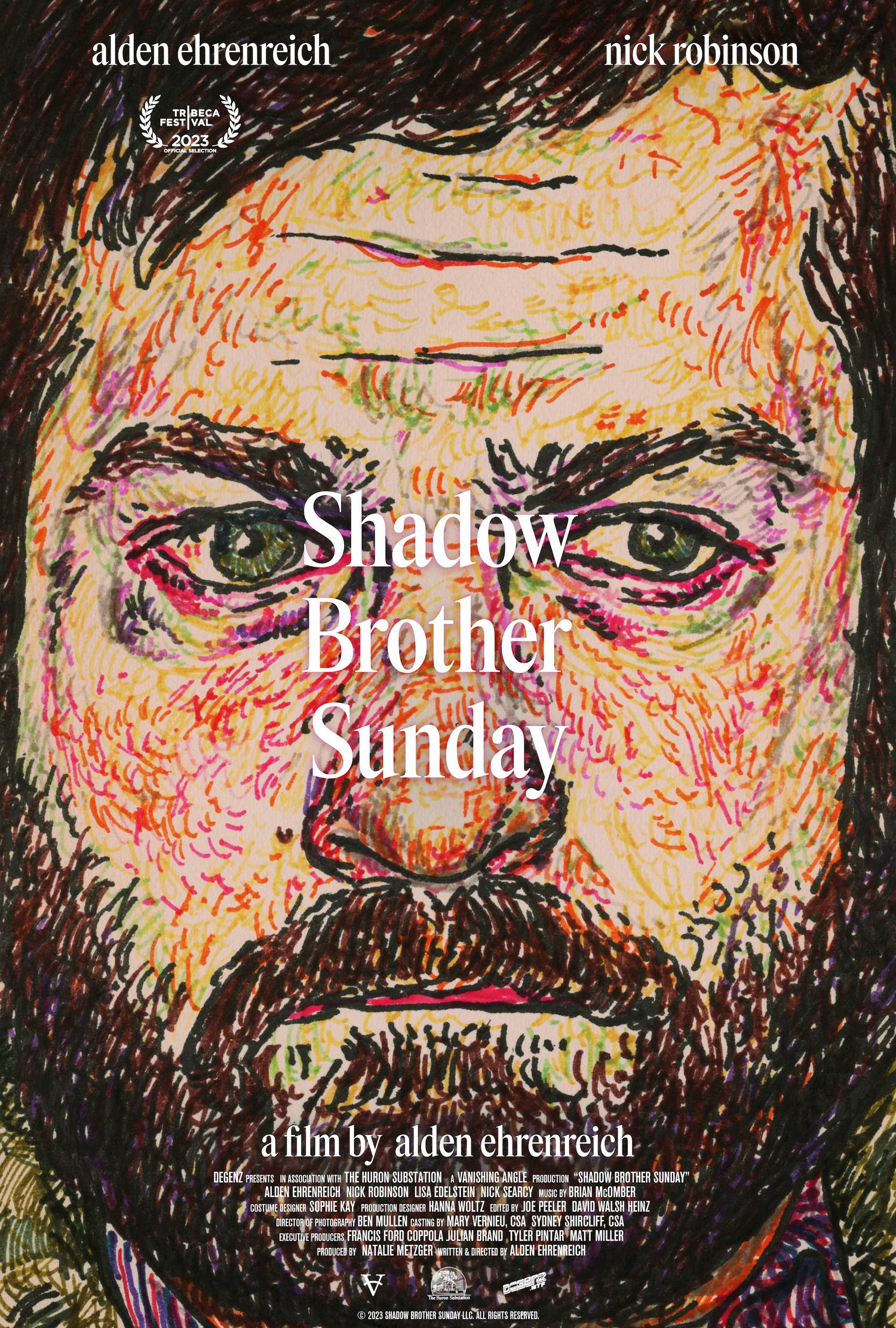How Francis Ford Coppola Inspired Alden Ehrenreich’s Shadow Brother Sunday
The Big Picture
- Alden Ehrenreich’s directorial debut, Shadow Brother Sunday, is a 15-minute drama that explores the relationships between loved ones when success and ego come into play.
- Ehrenreich shares the directors and films that inspired his short.
- The actor also discusses his first feature as a writer-director he’s currently working on.
If you’ve been to the movies in 2023, chances are you’ve seen Alden Ehrenreich. Though the actor has been working since he was discovered by Steven Spielberg at 14 (more on that later), this has been a banner year for Ehrenreich. He co-starred in Chloe Domont’s Netflix original erotic thriller Fair Play, was a scene-stealer in Elizabeth Banks’ horror-comedy Cocaine Bear, and worked with Christopher Nolan on the blockbuster of the year, Oppenheimer. So where do you go from there? Well, Ehrenreich’s stepping behind the camera for his directorial debut on his short Shadow Brother Sunday.
Penned, directed, and acted by Ehrenreich, Shadow Brother Sunday comes in at a tight 15 minutes, but the drama wasn’t always so concise. In an interview with Collider’s Steve Weintraub, he tells us this heavily researched tale of two brothers was once double that runtime and that paring it down was a particularly difficult challenge. In his own words, Shadow Brother Sunday is about “the relationships between people who love each other when success and ego get in the way.” It focuses on an older brother, Cole (Ehrenreich), whos a failed musician returning home to ask for help from his rising star actor brother, Jacob (played by Nick Robinson). Realizing he can profit on his brother’s newfound fame, Cole sets out to steal and sell Jacob’s personal laptop to sell to paparazzi.
During their conversation, Ehrenreich explains the unique obstacles a short presents versus a feature-length production, how he worked with his editors to pinpoint the high emotions and high tensions and trim the excess, and all the lessons he’s learned from the iconic directors he’s collaborated with such as Shadow Brother Sunday producer Francis Ford Coppola. He shares the surprising facts his short is based on, why he chose to shoot on 35mm film, the feature-length script he’s working on currently, and how Spielberg had a hand in Ehrenreich’s eventual feature debut role in Coppola’s Tetro. You can check out all of this and more in the video at the top of this article or in the full transcript below.
COLLIDER: I really want to start with a sincere congrats on your short because I don’t think people really realize making a short film is next to impossible because you have to accomplish so much in such a short period of time. I’m curious, when you were thinking about directing and writing and doing something like this, was it almost like a feature might be easier?
ALDEN EHRENREICH: Absolutely. Well, I think I definitely figured that out as soon as we got into production. A feature would, in a lot of ways, be easier from a really kind of practical side. People don’t want to give money to something that doesn’t have a clear return on investment, and on the creative side, too, cinematographers or actors are like, “Why would I do this instead of keep my schedule open for something else?” So it’s really for the love of the game. Then especially when you’re trying to make something that’s a bit larger as a short, you know?
So, from the practical side it’s fairly insane and sort of dumb, but it was really gratifying. You know, I wrote this piece and I just felt like it wanted to be made, and I wanted to make it. I experimented with what it would be as a feature; it didn’t feel right to have it be a feature. It just wanted to sort of be this short story. I’m really, really happy and I got very lucky with being able to make it and learned a lot. I’m working now on what will be the first feature, which is an entirely different story, but I’ve been through the entire process on a scale that’s sort of closer to, like, a micro-budget feature and know the lay of the land a little bit more and feel more confidence in going into that kind of world.
How to Watch ‘Shadow Brother Sunday’
When are people going to be able to see it?
EHRENREICH: Well, we’re doing the whole festival run now, and then what I wanna do is release it as a film. So, you know, like in music, they’ll release a single sometimes with some of the same pomp and circumstance that they’ll release an album at this point. And in this world, these divisions of length, it doesn’t really matter, you know? Certainly in a streaming universe. So, my goal is to continue to do the circuit they’re on now and then explore distribution and figure out what the best home for it is and really release it and do more press like this, and get people to see it. There are rules around [it]; you can’t have it available online until you get…a lot of stuff that I don’t entirely understand. But it won’t be available until we sort of do the whole circuit.
I hate asking this, but no one has seen the film yet so how have you been describing it to friends and family?
EHRENREICH: It’s a film about the older brother of this young movie star who’s a musician, who’s failed in his career so far, who’s having a really hard time and is down and out, coming back to the family home on the day of his younger brother’s movie premiere, kind of big break. He’s back, channeling with the paparazzi to steal the younger brother’s computer and sell it to them. That’s the plot. What it’s kind of emotionally about is the relationships between people who love each other when success and ego get in the way.
One of the things that the short does really well is build up tension very quickly. Were you going for that, for that kind of tension, and what was it like in the editing room when you have such a short period of time to establish emotions like this?
EHRENREICH: It’s very challenging. What I learned in the editing room is actually that less was more in terms of this piece when it came time to the emotional material. It was easier to lose some of the detail, and some of the content inside the scenes helped the actual emotional subtext of what was happening land even more strongly. Then, when it comes to the tension, I have kind of a pet thing about, you know, I love character-driven movies. That’s my whole bag. You know, it’s like movies about human beings, that’s really where my passion is. I feel strongly that with the audiences today and the attention spans that exist, it impels storytellers who wanna make character-driven films, dramas, to get better at storytelling that grabs people.
Often, it can kind of feel like this polarized thing where there’s character-driven movies that require a lot of patience and require a lot of people who are already interested in that thing, or you go to a genre and you work along these rails, which can be wonderful, but the movies that I grew up loving, I think even more so we just need to find a way storytellers who want to tell things about people. I think there’s a way to do that without sort of Trojan-horsing it into a genre if you just get really on top of great storytelling structure and compelling narrative and things that feel real to people. So, I’m learning what that process is in that craft, but that’s where having this be a very tense piece comes in and having you wanna know what’s gonna happen next.
I think it’s about 15 minutes. How much did you debate the runtime? Were you aiming at 15? Were you thinking, “Maybe I wanna be nine or 10 minutes?” How did you figure that out?
EHRENREICH: The original script was 28 pages, and I was living in a world of, “This is gonna be a 30-minute film and I’m gonna have to just eat…” Again, it’s like making a short on a big scale. It’s dumb. But I was like, “This is what the movie wants to be. This is what I have to do.” It’s totally impractical when it comes to trying to get it into festivals and doing stuff like that. [Laughs] Then, in the edit, everyone was like, “God, if you could get it more toward 15 it’d be so much easier to submit it, and it’s so much easier to send out, and it’d be so great,” and I was like, “Great. Happy to hear that, but it’s not gonna happen.” Then the editor—this is why it’s great to have great editors—not with that in mind, but just for the purposes of making the story work, found a whole host of things to cut that I would have never imagined being okay with cutting. They brought the essence of the story out even more.
Yeah, it’s so funny. Did you feel like you were killing darlings, or did you feel like, “Oh, actually, yeah, this can just go?”
EHRENREICH: There was one where I watched it, and I was like, “If this editor had told me he was gonna cut this…” —it was a whole dialogue section—I would be like, “This isn’t the guy for me. I’m not gonna hire him.” And when he did it and I watched it, I went, “That motherfucker, he’s right.” You know, he was totally right, and it made the movie work. It was a great learning experience. I wrote the film originally as a oner…
Going crazy all in!
EHRENREICH: Yeah, it was nuts, but I was luckily talked out of that – strongly. I also fought that. And then, obviously, that was the best thing that ever happened. But, you know, the flow of it kind of stayed – the sense that you’re stuck with this guy, moving through this space fairly in real time.
A lot of people debate what they’re gonna do, as an actor, for their first feature, short, whatever they’re gonna direct for the first time. How much did you debate what the material was gonna be in terms of the subject matter for your first effort, and was it almost something else?
EHRENREICH: Sure. I mean, I’m always working on a lot of different pieces. Between acting work or even while I’m doing acting work, I’m developing a lot of different stories. What I’m always looking for is, there’s just kind of a magic little click that sometimes happens where intuitively you go, “No, this is the one. Other ones may be tempting, they may seem even easier, but this is the one, and I just have to see that out.” I mean, that’s my process right now with the feature I’m writing that I’d like to be the first one I make. It’s very challenging. It takes a long time, but I just intuitively sense that this is the one, and it was the same with this piece. It just was like, other things might even make more sense, another feature like we talked about might make more sense, but there’s an emotional resonance… You feel like these people, there’s a world. It’s very useful because when you sit down with the hair and makeup department, and they say, “What do the people look like?” You can kind of almost ask the world that seems to almost exist. And when you know that’s there, it kind of can carry you through what is this incredibly labor-intensive process of making something, bringing something into life.
Working With Francis Ford Coppola
You’ve worked with a lot of talented directors, I mean, a lot, and I’m sure that the whole time you were studying them, looking at lenses, because you obviously knew you wanted to do something like this. What were some of the big lessons you took away from the really gifted directors you’ve worked with that you’re like, “I’m stealing this, I’m stealing this…?”
EHRENREICH: I mean, I have like notes on my phone, and it’ll be “Directing,” and in parentheses whatever the movie is, and it will be just pages and pages of all the notes that I’m taking as an actor. A lot of them are do’s, a lot of them are don’ts, and it can be really micro things, you know? My first film was for Francis Ford Coppola. He really emphasized the rehearsal process, and in that rehearsal process, we were experimenting, we were making fools out of ourselves. He understood on a deep level that actors needed to play and needed to have fun and needed to feel that they could make mistakes and feel safe, and so he facilitated this rehearsal process that, yes, helped us figure out where the scene wanted to be and practical things, but mainly it made us feel like a troupe, and it made it feel like the joy of being in a play in middle school, and that really translates to the films. For all the seriousness and the gravitas of his films, at the heart of it are these great performances, and that comes more quickly out of that than it does out of these other environments. So rehearsal being really, really paramount to me, and then, you know, [laughs] just about hundreds of thousands of other things I feel like I’ve picked up from all these people I’ve been so fortunate to be able to work for.
Speaking of Coppola, I see his name as an executive producer on the short. Can you talk about how he got involved and what exactly he did to help facilitate the project?
EHRENREICH: I sent the script to him and he was very supportive of it. He obviously really lit this spark of inspiration for me when I was 17/18, and I wanted to do filmmaking then. I went up and interviewed him about filmmaking, and he sat—this was like 10 years after Tetro, my first movie—and he was so generous, as always, with his thoughts and insights around all of that. He’s watched the film a couple times and given me his impressions, and that was mainly it. It was more of an honorific than anything else and means a lot that he did that for me. It’s very nice.
There are a lot of people that I would be scared to show my movie to, and he would probably be at the top of the list.
EHRENREICH: Yeah, he’s definitely up there. I spent the last week sending it off to these…It’s like ludicrous the directors that I’m selling this film to. It’s very funny, but it’s also nice. It’s like being a kid and showing up to a family reunion or something, and you’ve grown up, and you’re going, “Hey, I’m an adult.” [Laughs]
Yeah, it’s also basically your calling card to a different club. It’s a completely different thing. So, one of the things in the film is, there’s a blackmail situation with your brother’s character, and the amount of money you’re being offered is $80,000. Is that based on a real number or is that just making it up as, like, maybe that’s what they’d pay?
EHRENREICH: No, I’m very research-driven and everything. I had a conversation with someone who worked in that sort of world, making those deals in the paparazzi sort of backend side of those things, and talked to him about what the real numbers would be. That’s definitely on the high end, but it’s not out of the realm of possibility for a really big star. For some real juicy stuff, that could be it.
You know, Cole needs $6,000 from his brother, and I wanted it to make it a number where we felt not that we wanted him to do it, but that we understood the magnitude of it, you know? It’s not get the money from your brother or get the money from there, it’s get the money from your brother or get so much more money that would change your whole life. It’s interesting to see how numbers and figures play on screen with audiences. When somebody says an amount of money in a movie you really feel that in the room. It’s interesting.
Well, the other thing is that oftentimes in movies they’re dealing with billions of dollars or the end of the world, and because of the character thing it’s $80,000, it’s not such a crazy number, but for him it’s life-changing.
EHRENREICH: Absolutely. Yeah, exactly.
What Inspired ‘Shadow Brother Sunday’?
Talk a little bit about how you got the title, and did you ever debate with another title like a one-word? Because the title’s everything.
EHRENREICH: I always loved it. It’s more poetic to me than anything else, you know? I like that. It almost sounds like “Sunday Bloody Sunday.” There’s like a myth, maybe it’s a Grimm’s fairy tale or something, about the Snake Brother or something like that, that I had listened to that I only retroactively realized influenced this. It was about a brother who gets thrown out the window when he’s born and turns into a snake, and then the younger brother is brought into the house, and then the younger brother is gonna get married, and this giant snake shows up and says, “Me before him.” So, I mainly like titles that work on a poetic basis, Reservoir Dogs always being a great one to me, you know, that doesn’t mean anything in the context of the film, but it adds this intangible quality to it.
So you shot on film and you worked with Ben Mullen as your DP, and I’m curious, how much did you debate film versus just using a red camera and saying, “We’re gonna do it digitally?”
EHRENREICH: That and the rehearsal were always the big ticket items that were nonnegotiable for me. There was a world of maybe shooting 16. I wanted to shoot 35 anamorphic and so we shot 35 spherical. It’s interesting. That’s something I’m really curious about. I want to do some more tests with 16 because it’s interesting—there’s a whole technical side of this—but it’s interesting to see with the color process what those differences are because there’s such advanced color technology now. But more interestingly, film, to me, you feel the emotions of a film more when it’s shot on film. It’s a physical process. You’re seeing the human beings, you’re feeling the textures of the film, and that was everything in this, and it just wakes me up when I see something that’s shot on film.
Then I had worked with Christopher Nolan, like, right before I shot this, and I was like, “If for some reason I don’t shoot on film now, I’ll be disinvited from the premiere party.” [Laughs] So yeah, I just love it. I love what it brings to things, and in an era where we’re all seeing 1,000 digital images all day, it brings back a little of that old magic that film felt like when I was younger.
I understand digital. I understand the need for it. And I do think, also, a lot of people just don’t admit, when you’re shooting with no light… Look at what Gareth Edwards did with The Creator: they used, like, a Best Buy camera that cost three grand to shoot at night with a little LED. They were able to shoot pitch-black darkness, and obviously that’s incredible, but that’s a specific thing that you’re going for, and the aesthetic of film, it’s incredible. But again, if you were shooting at night it would be a different thing.
EHRENREICH: It’d be a totally different thing. I do feel that there are films, you know, Tangerine is more interesting for it being shot on the iPhone. There are places where that’s in its own aesthetic, but I think it’s about owning that aesthetic. The thing that drives me crazy is seeing all these films that are now shot with digital cameras that are being lit like it’s 1993, and you’re looking at these actors in a fucking bookshop, and it’s like you can see the light…It’s so heavy-handed and it’s so fake, especially character-driven movies. So, I just think like, you know, the lighting practices– There’s just still a lot of like, “Well, we do this now,” and it’s like, “No, you don’t need anything. These cameras are so sharp, if you just put them in the room, like get the reel,” you know? Why are we adding things?
I was just having this conversation with someone. If you look at, like, early ‘90s or mid-nineties romantic comedies, some that are not even that good, they’re shot better than others.
EHRENREICH: Oh, absolutely.
It’s absolutely bananas.
EHRENREICH: They look gorgeous. Then you get things, and you have all these people coming together. I think a big challenge, for me, at least, as a filmmaker, and I feel this more when I’m the actor and I don’t have this say-so, is getting people to do less, you know? That applies in a huge way to acting, but it also applies to, I had a great hair and makeup team— [Jacqueline] Knowlton and Lori Guidroz—who were like, “If somebody shows up and their hair looks good, what are we doing? Let’s not fuck with it.” Or if we go into a room and there’s light coming in the window, how much do we really need to add to that? And being able to exercise that restraint and not do the, “Well, I’m being paid, so I better do my job,” and then you just get these films that end up feeling like bad TV movies or something.
What Is Alden Ehrenreich’s Debut Feature?
No, it’s interesting. You’re coming at it from a different perspective. Anyway, you’re writing a feature right now; can you tease anything or are you just gonna be like, “I’m writing a feature?”
EHRENREICH: All I could say really is that it’s thematically and tonally sort of along some of the same lines – show business and family are very central to it. I would say the comedy of it is bigger and the drama of it is darker. So, the colors are all the same, but they’re a little more heightened in both directions. And other than that, I’m just in a cave wrestling with making this thing happen. [Laughs] It’s a really fascinating process.
I totally get it. One of the things, though—truth—nowadays with like a talking drama, you need to make sure what people are talking about is stuff that’s interesting. It’s easier to get people to watch when they say, “Oh, it’s a story about these three actors in Hollywood,” and it somehow incorporates the movie. I don’t know, maybe I’m wrong about this. It’s one of the reasons I think Pulp Fiction, besides that the movie is incredible, is you’re dealing with these gangsters and characters that you want to spend time with.
EHRENREICH: Yes. Absolutely. I go by the same idea, I think, from a slightly different road, which is when I’m working on something, I want to feel that it’s almost maximalist in the world that you’re in, that the world you’re in is detailed enough where you feel like you could walk into it and there would actually be something on that counter, and everything everybody talks about is really based on something that those characters would say in that moment and are part of their environment in that way. You know, and actors, so much of the job is filling in the environment that you’re playing in and getting into, “Well, what’s this time period? What would people be wearing? Who would their heroes be?” Whatever the case may be. And so, from a writing perspective, things feel more alive when they’ve been lived in at this level of depth, and you can kind of feel it, I think, on a different level. So, that’s the aspiration that takes a lot of work and a lot of time.
I just watched a documentary about Robert Caro, who wrote the Lyndon Johnson biographies, and he would go to the South and live where Lyndon Johnson lived so that he could bring that to life with rich, vivid detail. I think that every part of life and every human being given that level of attention and detail becomes vivid and fascinating. So, that’s the standard I’m trying to hold myself to, to my own chagrin. [Laughs]
We are hopefully approaching the end of the actors’ strike, god willing, it’s gonna end today or soon. What has it been like for you in the last few months, and are you just dying to work again?
EHRENREICH: You know, I’m very fortunate. It’s been very sad. It’s very sad to be in this city. It’s very sad to see restaurants close, it’s very sad to talk to people who are out of work and for whom this has stalled. I’m very lucky, and I had a few movies come out this year during this time, and I have a movie I’m gonna do after this. It kind of has stalled things, but it hasn’t killed things. And there’s a lot of people for whom this has maybe meant that this isn’t the career they can have anymore, not to mention the other industries in Los Angeles, in particular, that are dependent on the entertainment industry. So, it’s been that kind of heavy feeling of stalled, not nearly as bad as COVID, but almost a little reminiscent of those times, where things are in this holding pattern; we’re all waiting for this thing.
But I’m really glad these conversations are being had now because if not now, then when? And so for me, it’s been that, and then I’ve been trying to take advantage of the opportunity to write and develop as much as I can. And I have a theater space—that’s where I’m at right now—that I’m putting together to start doing plays and events.
Basically, you’ve been using all the time for other things.
EHRENREICH: Yeah. I haven’t been using it as much during the pandemic publicly, but I’m setting it up, and we’re doing some of the things, all the logistics of getting it set up, so we can start doing our first plays next year here…We’re getting that together to start as kind of an off-Broadway house-style theater in LA and then have a series of dinners, movie nights, little concerts, lectures, and things like that in between.
A, that sounds awesome, and B, bringing more culture to LA – thumbs up. Obviously, when you start doing this, please let me know so I can help you promote.
EHRENREICH: Absolutely. Thank you.
How Steven Spielberg Discovered Alden Ehrenreich
I do want to ask you: One thing I read is that when you were much younger, Steven Spielberg was the one who sort of helped you get noticed. For people that don’t know, can you tell that story?
EHRENREICH: Sure. I was making little movies with my friends on the weekends, like the kind of thing that would be put on YouTube now in a silly way, and I made one that was shown at a girl that I was friends with bat mitzvah. It was on a little screen on the side—it wasn’t even really screened, it was just like on a loop somewhere—and this girl was friends with Steven Spielberg’s daughter, I was 14, Steven was at the bat mitzvah as a result, and saw me on this little video and thought that I was funny. We got a call from DreamWorks, you know, my mom and I, like a week or so later and brought in to meet Leslee Feldman, who’s still a really close friend, I had dinner with her last week, to have a meeting about my being an actor. And so he did this, and as a result, I was able to get an agent, and it started my entire career, which was just, you know, an amazing thing for him to do.
I guess I have to ask you, what do you get him for his birthday every year for changing your life?
EHRENREICH: [Laughs] Well now I’m really questioning my decisions. I’ve never got him anything. I’m not really close with him, I’ve only talked to him a handful of times.
[Laughs] I know, I’m teasing.
EHRENREICH: But you’re right, I should certainly– I’ve written him letters and stuff in the past thanking him as an adult. Amblin produced A Brave New World, which was the series I did a few years ago, and I thanked him around that time, but you’re smart. I should get something.
I mean, it can’t hurt to send him a card. There’s nothing you can buy him that he can’t buy.
EHRENREICH: That’s true.
I think it’s the personal thing, like a personal note or a personal card that basically says, “Thank you for changing my life.”
EHRENREICH: Yeah, exactly. That I’ve done. That I have sent to him. I’m sending him a note today actually because I sent him Shadow Brother Sunday.
[Laughs] “By the way, no pressure, changed my life, maybe you have 15 minutes.”
EHRENREICH: Exactly.
Preparing ‘Shadow Brother Sunday’ for the Festival Circuit
Who did you actually trust for honest feedback before you locked the movie?
EHRENREICH: Great question. Well, especially because I’m acting in it. I was at Pixar a few years back and kind of got a tour of their process, and I’ve always believed in this, but that was very inspirational for this, too. I have basically a brain trust of about 10 to 12 people that I check in with at every step of every process. Growing up in the inspiration of Coppola, you know, you think about him and Spielberg and Scorsese and De Palma and George Lucas, this group, it’s not like six geniuses walked into a room and happened to meet each other. They made each other better. They pushed each other, their thinking, their conversations. Brian Eno has this, I think it’s called “scenius,” this idea that it’s like genius through a scene of people, and so I really leaned on these 12 people.
It’s a combination of writers and some actors and directors for the script, and then what we did was had a table read it at this space with a bunch of really good actors. We recorded the table read and I had friends of mine come listen to that table read and we sat in the back here, and they gave me notes on it. Then we took the table read and I drew storyboards and did an animatic, basically the way Pixar does, where it’s an animated version of the movie with the storyboards with the table read underneath it, so it’s a really crude animated version of the whole film. Screened it here with the same group, sat out in the back, had them beat the shit out of me on all the notes of what they thought should be different with that. So, by the time I’m filming, we’ve road-tested the film as much as humanly possible because that seemed to be the key to Pixar’s incredible batting average was, you can test things before. Most movies, you write a thing, then you’re on set, you’re hemorrhaging money, and you’re just hoping it works. So that level of preparation was really useful.
I got some of that inspiration from the Coen brothers, who storyboard extensively. When you show up on set, you have in your trailer the storyboards. So then I edited the film and did a screening of it, another group of people gave me notes on it, and then sending it out to the people. So, very fortunate to have that community of people, and it was so instrumental. Like if you saw the version of the movie that it started as, as opposed to where it got, it made an enormous difference.
Yeah, this explains why I enjoyed the short so much because you spent a crazy amount of time rehearsing every aspect of this thing.
EHRENREICH: Yeah, exactly.
I’ve spoken to an awful lot of people in Hollywood, most people do not spend this much time fine-tuning something.
EHRENREICH: Yeah. It’s just my somewhat temperament, somewhat of a belief system. Then, when we did the film, we did four days of rehearsal, me and Nick Robinson, and Lisa Edelstein was there for most of it, too, and then Nick Searcy came in at the end. We did, like, improvisations of our childhood, moments where I’m 15 and he’s 12 and I’m showing him my music and talking about how I’m gonna be a famous musician, or he’s calling me from camp because he’s scared, or the day our dad fell off the wagon and our mom’s trying to hide it from us. We did all these improvisations to try to get the feeling in our bones of what this family has lived through so that it would speak with a sort of different resonance when we talked inside the film itself.
#Francis #Ford #Coppola #Inspired #Alden #Ehrenreichs #Shadow #Brother #Sunday

